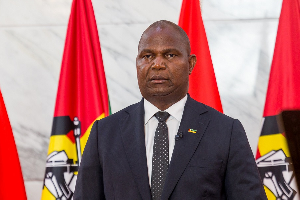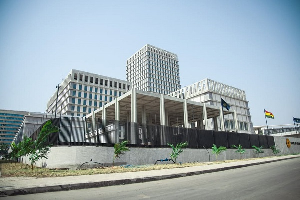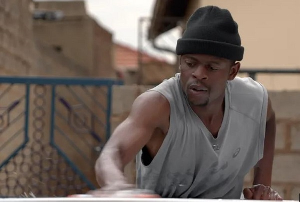Reports reaching The Herald indicate that the defense attorney of Nana Ama Martin, a suspected drug courier, is today expected at the four-member committee set up by the Chief Justice, to investigate the circumstances under which 1,020 grammes of cocaine turned into baking powder.
Lawyer Kwabla Senanu of Senanu & Associates, The Herald is informed, will provide the answer to the cocaine-turned baking soda jigsaw puzzle that has recently scandalized the judiciary and the police institution. Contrary to the expectation of many, Lawyer Senanu’s bombshell is sure to rock the police more than any other institution implicated in this saga.
The Herald’s report have it that when Madam Martin, the lady charged with possession of cocaine, was arrested on August 28, 2008, she was in the company of a man alleged to be an informant of the police.
This alleged informant is said to have called Madam Martin, a secondhand clothes dealer, that day to meet him at the Kotoka International Airport (KIA) junction.
In a charted taxi cab, the informant invited Mad. Martin to join him, and they took off with the taxi cab driver at the wheels.
Reports say soon after taking off, they realized the police were following them. Sensing danger, the police informant, along the line, turned the ignition key off, bringing the car to a halt, and subsequently dashed out of it in a flight.
But instead of the police going after him, they jumped into the taxi cab and searched it where they found a bag containing a substance suspected to be cocaine.
The taxi cab driver and Mad. Martin were taken to the Police Headquarters, where in their statements they denied ownership of the bag containing the drug suspected to be cocaine.
Despite her denial, Mad. Martin was charged for possession of cocaine and hauled before court. On November 11, 2009, she was granted bail, and she left to visit her sick son in the United States of America.
Upon her return to Ghana, she was picked up by the police but granted bail on September 16, 2011. In the course of the trial, the cocaine exhibit was tendered in court on September 27, 2011, and lawyer Senanu demanded that the substance, whose identity, supposedly, had been tested and proven to be cocaine, should be retested by an independent body because the police is an interested party in the case, and cannot be a referee and a player on the same field.
Moreso, when the exhibit was brought to court and opened, the repulsive smell associated with the deadly narcotic drug was missing; heightening his (Senanu’s) suspicion that the substance tendered in court could be something else apart from cocaine.
For this reason, on the next day, September 28, 2011, the defense attorney called for a re-testing of the exhibit. Reports reaching The Herald indicate that the defense attorney’s request did not go down well with the police, who were in court that day in connection with the case.
And lo and behold on September 29, 2011, the test conducted by the Ghana Standards Board (GSB) proved to be negative, identifying the supposed cocaine, deemed to have been confirmed as such based on two tests conducted by the police, as washing soda.
The Herald’s information is that there were desperate efforts by some people to put a cover on the result of the test conducted by the GSB.
The bizarre twist in a story of cocaine, turning into washing soda in the custody of institutions mandated to be handling such issues, has sent a wave of anger and consternation among Ghanaians, who are demanding a thorough probe into the issue and a subsequent measure to cure such dishonesty and criminality from among people supposed to be enforcers of the law.
Accordingly, the Vice-President, John Mahama has called for a probe into this sordid affair that surely would be followed by deterrent measures.
General News of Monday, 19 December 2011
Source: The Herald












